MuMa
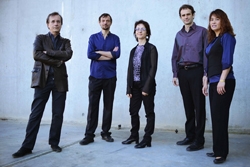
Musicians: Marie-Bernadette Charrier (art direction and saxophone), Clément Fauconnet (percussion), Christophe Havel (électronic device), Géraldine Keller (voice)
Festival PiedNu
Festival PiedNu
Date
- April 04, 2015
Price
Free
No reservations.
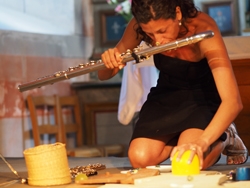
Musicians: Alessandra Rombola (flute), Michel Doneda (sax), Ingar Zach (percussion), Esteban Algora (accordion) and Nuria Andorra (percussion).
Festival PiedNu
Festival PiedNu
Date
- April 02, 2015
Price
Free
No reservations.
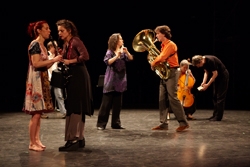
Damdaj de Vinko Globokar Vandoeuvre-lès-Nancy. © Sylvain Thomas
Musicians: Martine Altenburger, cello ; Tiziana Bertoncini, violin ; Fabrice Charles, trombone ; Isabelle Duthoit, clarinet ; Géraldine Keller, soprano ; Carl Ludwig Hübsch, tuba ; Thomas Lehn, piano/analog synthesizer ; Angelika Sheridan, flutes ; Lê Quan Ninh, percussion
Festival PiedNu
Festival PiedNu
Date
- April 01, 2015
Price
Free
No reservations.
![Lyonel FEININGER (1871-1956), Dilapidated Village [under a bright sun], 1918, woodcut, 11.4 x 10.5 cm. Private collection. © Maurice Aeschimann — © ADAGP, Paris, 2015 Lyonel FEININGER (1871-1956), Dilapidated Village [under a bright sun], 1918, woodcut, 11.4 x 10.5 cm. Private collection. © Maurice Aeschimann — © ADAGP, Paris, 2015](https://www.muma-lehavre.fr/sites/default/files/styles/w250/public/thumbnails/image/bd_feininger_12.jpg?itok=ba7wFajf)
Lyonel FEININGER (1871-1956), Dilapidated Village [under a bright sun], 1918, woodcut, 11.4 x 10.5 cm. Private collection. © Maurice Aeschimann — © ADAGP, Paris, 2015
Initially a musician, the German-American Lyonel Feininger (New York 1871– New York 1956) achieved fame as a cartoonist and press illustrator in the USA and Germany in the early twentieth century, then became a highly-regarded painter and printmaker associated with the cubist and expressionist avant-gardes. He taught at the Bauhaus from its creation in Weimar in 1919. Feininger lived in Germany for 50 years before being labelled a degenerate artist by the Nazis in 1933, and ending his days in New York. Although he is a major figure in twentieth-century modern art and has been the subject of many retrospectives all over the world, he remains little-known in France, absent from national public collections except for those of the Centre Georges Pompidou.
Thanks to the generosity of a devoted art-lover who has amassed one of the largest collections of Feininger's work in existence, MuMa now has the opportunity to invite visitors to discover this unique body of work. The collection naturally reflects the collector's tastes. There is a deliberate focus on Feininger's graphic art and the dazzling series of woodcuts he produced in just over two years at the Bauhaus. Although the collection spans almost the whole of Feininger's career (covering the years between 1907 and 1949), this personal slant means that the exhibition is not a true retrospective, but an invitation to make the acquaintance of Lyonel Feininger's attractive, lyrical oeuvre and step inside his highly individual world.
Thanks to the generosity of a devoted art-lover who has amassed one of the largest collections of Feininger's work in existence, MuMa now has the opportunity to invite visitors to discover this unique body of work. The collection naturally reflects the collector's tastes. There is a deliberate focus on Feininger's graphic art and the dazzling series of woodcuts he produced in just over two years at the Bauhaus. Although the collection spans almost the whole of Feininger's career (covering the years between 1907 and 1949), this personal slant means that the exhibition is not a true retrospective, but an invitation to make the acquaintance of Lyonel Feininger's attractive, lyrical oeuvre and step inside his highly individual world.
Date
- from April 18, 2015 to August 31, 2015
Internal link
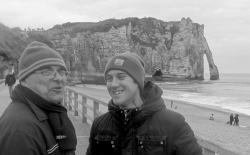
Guillaume Gargaud and Jean Philippe Gomez at Étretat. © Le Havre, AMH
Guillaume Gargaud & Jean Philippe Gomez
Atelier de Musique du Havre (AMH)
Atelier de Musique du Havre (AMH)
Date
- February 05, 2015
Price
Free
No reservations.
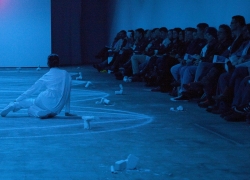
- -
Performance: Jonah Bokaer and Daniel Arsham
Choreography and performance: Jonah Bokaer
Scenography: Daniel Arsham
Music: Ryoji Ikeda
Costumes: Fabric Workshop and Museum, Philadelphia
CCN Le Havre - Haute-Normandie, festival Pharenheit
Choreography and performance: Jonah Bokaer
Scenography: Daniel Arsham
Music: Ryoji Ikeda
Costumes: Fabric Workshop and Museum, Philadelphia
CCN Le Havre - Haute-Normandie, festival Pharenheit
Date
- February 01, 2015
Price
Free
Reservations required, by calling +33 (0)2 35 19 62 72 during museum opening hours.

- -
Performance: Jonah Bokaer and Daniel Arsham
Choreography and performance: Jonah Bokaer
Scenography: Daniel Arsham
Music: Ryoji Ikeda
Costumes: Fabric Workshop and Museum, Philadelphia
CCN Le Havre - Haute-Normandie, festival Pharenheit
Choreography and performance: Jonah Bokaer
Scenography: Daniel Arsham
Music: Ryoji Ikeda
Costumes: Fabric Workshop and Museum, Philadelphia
CCN Le Havre - Haute-Normandie, festival Pharenheit
Date
- January 31, 2015
Price
Free
Reservations required, by calling +33 (0)2 35 19 62 72 during museum opening hours.
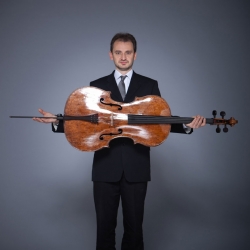
Florent Audibert, cello. © Rouen, Opéra
Music: Ravel, Faivre, Bach, Glière
Poems: Bertrand, Baudelaire, Verlaine, Laforgue, Michaux
By: Hélène Bordeaux, Florent Audibert and Erick Denis - Opéra de Rouen Haute-Normandie
Poems: Bertrand, Baudelaire, Verlaine, Laforgue, Michaux
By: Hélène Bordeaux, Florent Audibert and Erick Denis - Opéra de Rouen Haute-Normandie
Date
- January 15, 2015
Price
Free
No reservations.
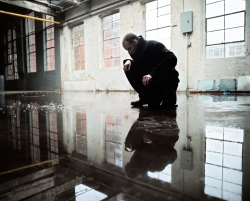
Sabine MEIER (1964), Narcissus, “Portrait of a Man” series, 2011-2014, photography. © Sabine Meier
Portrait of a man (Rodion Romanovitch Raskolnikov) is the photography work resulting from the "Le Havre-New York, Regards croisés" residency, first produced in New York (October-December 2011) and then in the artist's studio in Le Havre (August 2012).
This set forms a photographic portrait of Rodion Romanovitch Raskolnikov, the protagonist of Dostoyevsky's novel, Crime and Punishment. The novel, which describes a double murder and its physical and psychological consequences on the murderer Raskolnikov, follows the painful development that ends in unexpected salvation.
This set forms a photographic portrait of Rodion Romanovitch Raskolnikov, the protagonist of Dostoyevsky's novel, Crime and Punishment. The novel, which describes a double murder and its physical and psychological consequences on the murderer Raskolnikov, follows the painful development that ends in unexpected salvation.
Date
- from December 06, 2014 to March 08, 2015
Pages
- « first
- ‹ previous
- 1
- 2
- 3

